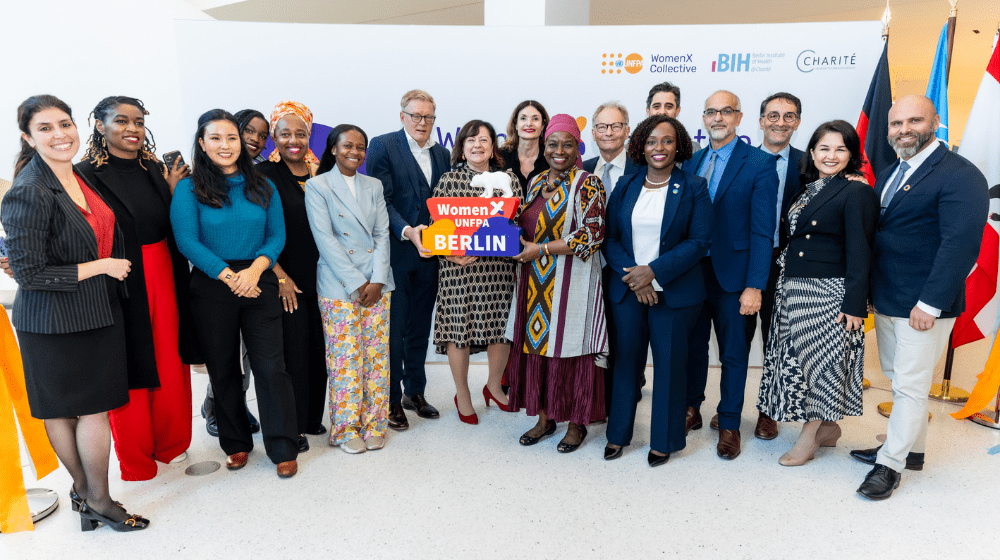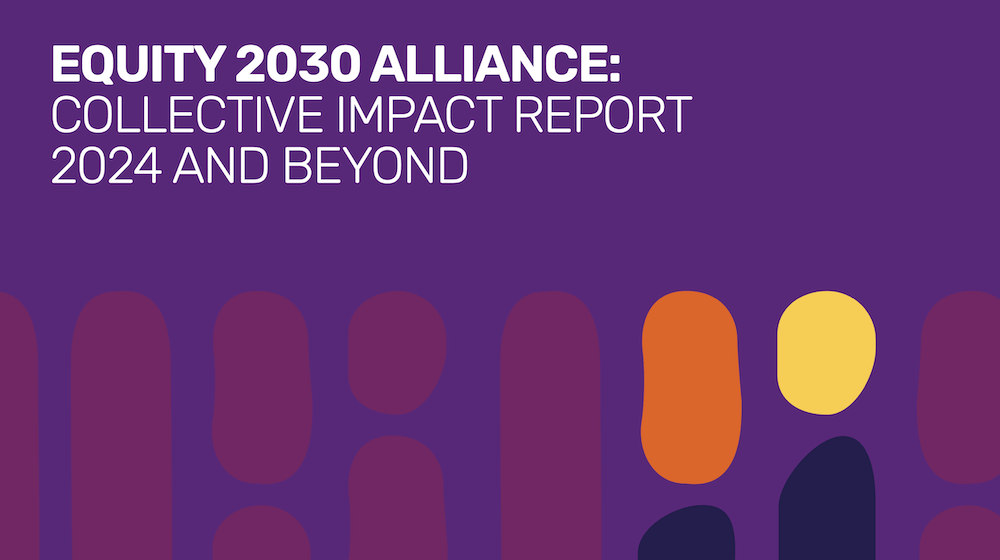Innovation
Why We Innovate
In a rapidly changing world, UNFPA needs dynamic solutions to meet the needs of women and girls and deliver sexual and reproductive health and rights (SRHR) for all.
The Sustainable Development Goals (SDGs) recognize innovation as critical to accelerating progress towards global development aspirations. We must embrace innovation to deliver on our three transformative results to end preventable maternal deaths, end unmet need for family planning, and end violence gender-based violence and all harmful practices, including female genital mutilation and child, early, and forced marriage.
What We Support
The UNFPA Innovation Fund has investments under four innovation thematic priorities—digital health, SRH commodities, data, and innovative finance (figure below)—with an aim to strengthen UNFPA results in these areas and contribute to our corporate transformative goals. The Innovation Fund supports small to medium innovative ventures which test, rapidly prototype, pilot, and transition to scale new solutions through the Innovation Pipeline, alongside big signature initiatives to create “global goods” for the development community writ large. UNFPA Innovation supports initiatives and projects aligned with its four thematic priorities and key actions.

UNFPA promotes innovation to improve sexual and reproductive health and rights programming by:
- Creating innovative solutions with partners to address bottlenecks,
- Enabling the transition to scale of innovations that have proven to be successful,
- Partnering with innovators from the public and private sectors, and
- Institutionalizing a culture of innovation in UNFPA.
What Guides Us
The nine Innovation Principles below guide UNFPA’s Innovation portfolio. These principles represent a concerted effort to capture the most important lessons learned by the development community in the implementation of innovation-enabled programmes:



Project Examples
At the country level, country teams apply design thinking to overcome bottlenecks to women and girls’ access to sexual and reproductive health, especially to end unmet need for family planning and end preventable maternal deaths. Teams are testing novel approaches in digital health, big data scraping, and logistics management and information systems to challenges such as widespread family planning myths, poor access to reliable SRHR and family planning information, lack of comprehensive sexuality education (CSE) for adolescents, and lack of accurate and timely data reporting on family planning commodities at last mile healthcare facilities.
Regional efforts include building skills among UNFPA country teams to embed innovation within the design of the 4-year country programmes, identify innovation and to establish regional innovation hubs.
At the global level, UNFPA Innovation is investing in and building “global digital goods” that can benefit the development community at large, including the mHealth Starter Pack, Learning for Impact toolkit, and Population Data Platform. In addition, the annual Innovation Pipeline consists of sourcing and selecting the most promising ideas and teams, who participate in a week-long boot camp and six month-long design sprint, in partnership with WFP Innovation Accelerator, to design, rapidly prototype, and test bold solutions in family planning and maternal health.
UNFPA is also at the forefront of the Covid-19 response, adapting innovation approaches in data, sexual and reproductive health and rights, youth, and gender-based violence.
Partners
The Government of Denmark
The Government of Finland
World Food Programme (WFP) Innovation Accelerator




